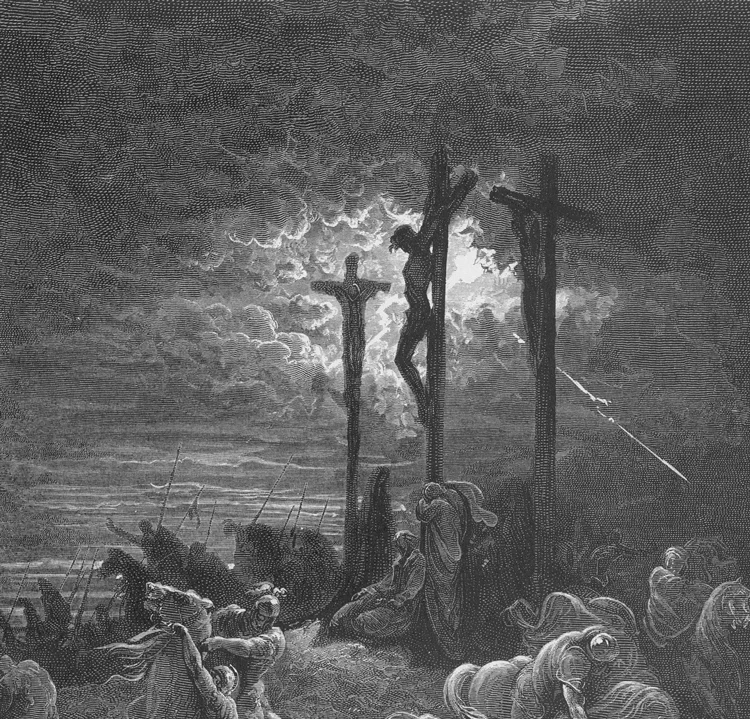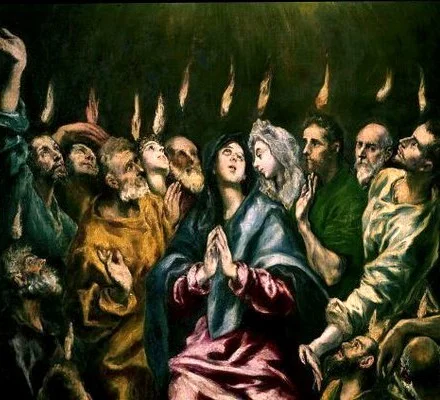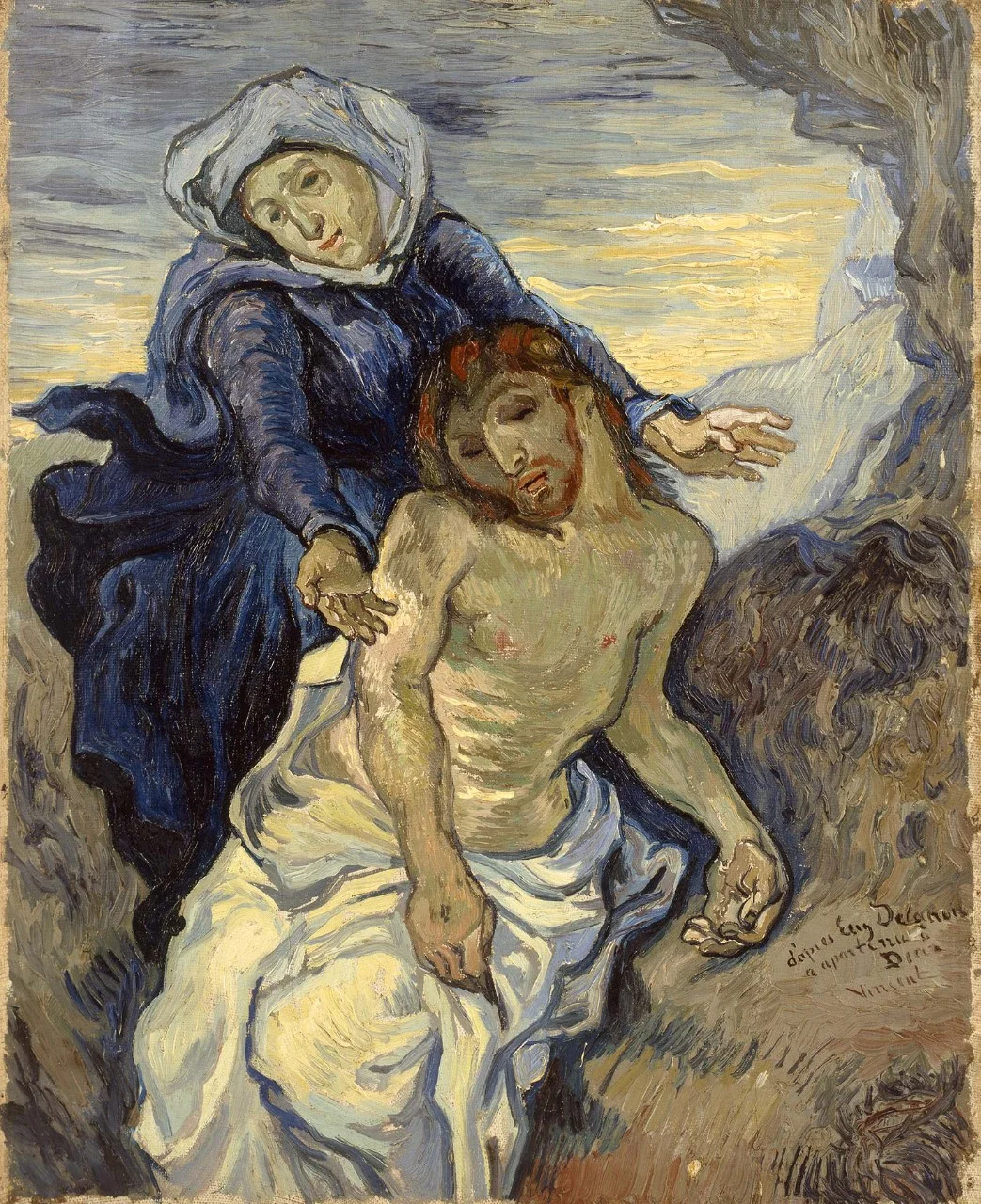The Church has a patron saint of natural scientists, though I confess that I have never availed myself of his intercession. Albert—called Magnus (the Great) even during his lifetime—is now best known as Thomas Aquinas’s teacher and defender, but as the Church celebrates his feast on November 15th, we have an excellent excuse to learn a little more about his own life and work. […]
New Book -- Love in Action: Catholic Social Teaching for Every Church
Catholic Social Teaching has been described as the Catholic Church’s best kept secret, the fruit of carefully applying the demands of the Gospel in ever-changing social and political contexts. […]
Death and Dying: Five Books
I can’t seem to get away from death, which is probably a lesson for us all. But I mean something more specific than that. When I started graduate school a decade ago, I decided to write my PhD. on the psychological effects of death anxiety on religiosity. Try as I might to pivot to something else, I am still compelled toward the topic. I’m not sure why, but I can guess. In the course of my work on the topic, I have tried to read as much as I can about death and dying, about the ancient rituals and the modern industries that surround them, about accounts of death both real and imaginary. These are the books I return to the most, from which I have gained the most in different ways. […]
Science and Religion series -- "Science and the Soul"
Nobody talks like this anymore, but the etymology of “psychology”—from the Greek psyche and logia—is plausibly rendered as “science of the soul”. Perhaps it is apt that talk of souls is out of vogue, as our modern conception of psychology is much narrower than those of our ancestors: Aristotle’s starting point was that the soul is “the principle of animal life” [1], whereas modern psychologists are mainly interested in the mental aspects of that life […]
St Luke: Beloved Physician
The author of one of the three canonical gospels, St Luke the Evangelist, sometimes affectionately called The Angelic Doctor, is celebrated on October 18th. He is one of the most prolific writers in the New Testament writing the longest gospel but also having The Acts of the Apostles attributed to his hand too—combined making up over one quarter of the entirety of the New Testament. Luke also seems to appear as a character in Acts […]
Christian Spiritual Practice: Five Books
“Say to yourself very often about everything that happens, ‘God loves me! What joy! And reply boldly, ‘And I truly love Him too!’ Then go quite simply about all that you have to do and do not philosophize any more. For these two phrases are beyond all thought and do more for us than any thought could do; they are all-sufficing.” […]
St Francis of Assisi
Many saints are shadowy figures. There is admittedly usually what purports to be a “life”, but that is generally hagiography, following stock topoi: birth, acts of healing and other miracles, death (perhaps as a martyr), and posthumous miracles. Such accounts often share details with other saints or, on occasion, with mythical figures not necessarily Christian. Thus, England’s own patron saint, St George, may in part be descended from a pagan hero such as Bellerophon. Francis is different.
Catholic Social Teaching: Five Books
Catholic Social Teaching has been described as the Roman Catholic Church’s best kept secret. It is a rich body of thought, the fruit of the Roman Catholic Church carefully applying the demands of the Gospel in the midst of ever-changing social and political contexts. It finds its origins in Europe at the end of the 19th Century and continues to be worked out today, with recent interventions by Pope Francis developing this body of teaching and reflection on how the Gospel is to be preached in an increasingly globalised world. […]
God and Emotions series -- "God's Justice, God's Mercy"
We almost all have sung the famous hymn by Fr Frederick Faber: ‘There’s a wideness in God’s mercy’. It’s often sung in such a way that makes God sound like an avuncular sort of chap that you’d be keen to have a pint with, a thoroughly nice bloke who’s kind to everyone, wouldn’t hurt a fly. All of our images fall short of the reality of the living God. […]
St John Chrysostom
John Chrysostom, whose name is Greek for “Golden-Mouth”, was born to an army officer and his (possibly pagan) wife in 349. He was not baptized until he was thirteen. Furthermore, when he went to study in Antioch—the chief city of Syria and the Levant—he pursued his studies in rhetoric with the pagan Libanius, the greatest master of rhetoric in the fourth century before Chrysostom himself. At the same time, he did consider himself a Christian and embraced an ascetic life which suited his bookish temperament. […]
New Book -- Love Makes No Sense
Our first book is ready to pre-order!
Four myths about vocation, and three steps to find yours
Does everyone have a vocation? I believe so. Too often the Church’s discussion of vocation focuses on ordination and the religious life, to the exclusion of other possibilities. Several unhelpful myths about vocation have developed as a result of this emphasis. In fact, these myths distort the way we think about vocations to ordained ministry as much as any others. […]
God and Emotions series -- "Does God Suffer?"
There are many enticing delights in the basket of heresies available to those who would try to follow Christ. All heresies have at least one thing in common. They’re a simple, and usually attractive, means of making some aspect of the Christian faith easier to swallow than what’s taught within Christian orthodoxy. They often seek to smooth or iron out frustrating tensions that Christian orthodoxy seems quite happy to let stand. All heresies also almost aways have unintended consequences - they make an aspect of the faith easier to swallow, but can cause problems further down the theological line. […]
Science and Religion series -- "What is science?"
In the first post in this series, I tried to say something about God and what it means for God to be the creator of the world, and why it’s a mistake to think that the doctrine of creation could be contradicted by some scientific theory or the other. I would like now to try to say something about the scientific enterprise, and how it is related to what philosophers and theologians do. […]
Remembering his mercy: Marian doctrine and the Rosary prayer
A common criticism of Marian devotion is that makes the Blessed Virgin an intermediary between Christians and the one and only Mediator who is needful. The most effective response to such criticism is to explore the concrete realities of such devotion. For, if we consider what we do when we pray the Rosary, it is to spend time standing with Mary gazing at our Lord. […]
Inside Spiritual Direction
Though I had discussed my spiritual life occasionally and informally for years, my experience of recognisable spiritual direction began during a quiet day just after I began training for ordination. The sister leading the day invited anyone who wished to discuss any points she had raised to speak with her. I was moved by what she said to us and so I hesitantly went to speak to her. I immediately found that I felt very free to reflect upon my relationship with God in a setting where I felt I was being listened to with care, interest, wisdom, love and complete attention. […]
God and Emotions series -- "God's Jealousy"
‘It’s not fair.’ We are born with an innate of sense of fairness. There’s no way to annoy a child more than to frustrate this sense of fairness. We know jealousy is a sin. In the Old Testament, we’re instructed against jealousy: ‘Thou shalt not covet thy neighbour's house, thou shalt not covet thy neighbour's wife, nor his manservant, nor his maidservant, nor his ox, nor his ass, nor any thing that is thy neighbour’s.’ (Exod 20.17). Don’t be jealous. […]
Science and Religion series -- "God is not a hypothetical entity"
Scientists are in the business of describing and explaining stuff that goes on in the world. Cognitive scientists like myself are principally in the business of describing and explaining stuff that goes on in our heads. We are, that is to say, interested in the gamut of human experience, from the mundane matters of taste and touch to the sublime sensations associated with romantic and, indeed, religious passion. This makes some people uncomfortable, this apparent encroachment of scientists into the rightful realms of saints. The “scientific study of religion” seems oxymoronic, a contradiction, if not of terms, then at least to our sensibilities. […]
Five paradoxes of spiritual direction
I speak from the margins of the church. Those of us with a heart for spiritual direction are always on the edge of things. Isn’t that a good place to be? With the Holy Spirit? Where better to be than in a place less of power than of influence? The gospel spreads better from the weak to the strong than vice versa. […]
God and Emotions series -- "God is Love"
Tina Turner famously sang: ’What’s love got to do, got to do with it? What’s love but a second hand emotion?’. In short, the Christian answer to her question is: ‘Everything’.
In God’s case, we can go a little deeper. God is God’s love. God’s love isn’t a second-hand emotion, but God himself. God’s ‘emotions’ aren’t second-hand properties but identical to him and to each other. Recalling the doctrine of divine simplicity, God simply is. God is God. And God is love: ‘God is love, and those who abide in love abide in God, and God abides in them.’ (1 John 4.16). […]



















